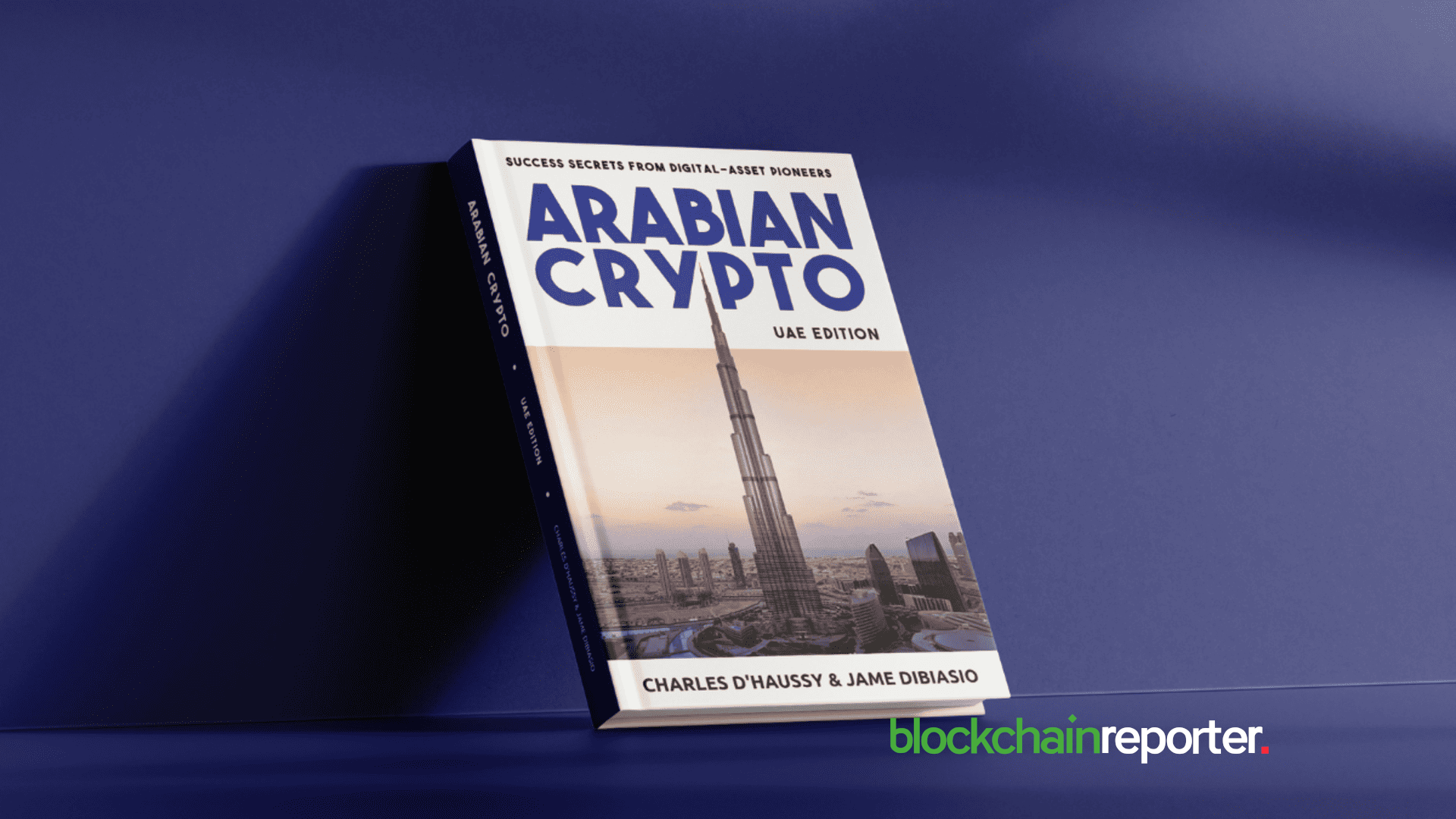New Book Reveals the People and Policies Behind the UAE’s Crypto Revolution



The United Arab Emirates’ rapid ascent as a global hub for digital assets is getting the definitive treatment in a new book, Arabian Crypto: UAE — Success Stories from Digital-Asset Pioneers , by Charles d’Haussy and Jame DiBiasio. Blending first-hand reporting with exclusive interviews, the authors trace how Dubai and Abu Dhabi turned a burst of ambition into a durable ecosystem for blockchain, crypto, and Web3 innovation.
The book argues that the UAE’s rise wasn’t an accident of timing, but a coordinated push that aligned policy, capital, and talent. It opens the door to conversations with founders, investors, and regulators who helped shape the market, charting how a region long known for energy wealth moved deliberately to capture the data and value flows of a new financial era.
“Crypto is as much about people as platforms,” said co-author Charles d’Haussy. “This book celebrates the human stories behind the UAE’s rise—its risks, breakthroughs, and resilience.” That people-centric lens runs through the narrative, giving readers a clear sense of the personalities, rivalries, and alliances that brought projects from pilot to scale.
Early praise has come from heavyweights across finance and crypto. Arthur Hayes, CIO of Maelstrom Fund and co-founder of BitMEX, calls the work “a fascinating look at the stories and personalities that dominate the Middle East, where energy and money intersect.” Alex Manson, CEO of SC Ventures by Standard Chartered, says it serves as “an indispensable guide and who’s who of digital assets in the region,” highlighting the book’s blend of reportage and practical insights.
Ambition Matched with Execution
Inside, Arabian Crypto maps the UAE’s progression from vision to regulation to revolution. Founders will find market-entry playbooks that capture how companies localize in a pro-innovation environment, navigating everything from licensing paths to partnerships and hiring. Regulatory case studies highlight how authorities pursued a “bold yet balanced” approach to digital assets, seeking to guard against risk while clearing friction for compliant growth.
Cultural context is a recurring theme: the authors unpack how to build across borders, read the room in dealmaking, and engage with decision-makers in a relationship-driven market. The storytelling is anchored by profiles and success stories from names that now define the regional landscape. Readers hear from teams at Nine Blocks Capital, Binance, Laser Digital, and Solana, among others, as well as insights from the Virtual Assets Regulatory Authority (VARA) and other policymakers who set the guardrails.
The result is a portrait of an ecosystem where fast-moving entrepreneurs and pragmatic regulators often sat on the same side of the table, an arrangement that helped compress the timeline from concept to live product. Beyond the case studies, the book captures the UAE’s broader play: to position itself as a neutral, globally connected venue for next-generation finance.
That vision has meant courting international firms, investing in local talent, and experimenting with frameworks that can scale beyond a single city or free zone. The authors suggest that this mix, ambition matched with execution, helped the UAE become a “world-class hub where innovation thrives,” even as other financial centers debated how to categorize crypto itself.
For industry newcomers, Arabian Crypto functions as an orientation guide to the Middle East’s digital-asset frontier. For veterans, it offers a record of how the region’s early movers took career-defining risks, what paid off, and what didn’t. The narrative refrains from cheerleading, instead letting operators and officials make the case in their own words. That approach may be why the book has resonated with both builders and bankers: it captures not only the rules and rails, but also the texture of doing business on the ground.
The authors bring complementary credentials. Charles d’Haussy is a fintech and DeFi executive and entrepreneur, previously serving as Head of Fintech at InvestHK, where he worked at the intersection of policy and startups. Jame DiBiasio is an award-winning journalist, author, and podcast host known for deep coverage of finance and digital transformation across Asia and the Middle East. Together, they deliver a narrative that is brisk, informed, and focused on practical lessons.
Arabian Crypto arrives as both a chronicle and a field manual as global firms reassess where to plant flags for their next phase of growth. It shows how the UAE’s mix of regulatory clarity, capital access, and openness to experimentation turned curiosity into an industry, and how the next wave of pioneers might build on that foundation.
Whether you’re a founder eyeing market expansion, an investor tracking new hotbeds of activity, or a policymaker weighing what “smart regulation” looks like in practice, this book makes a persuasive case that the UAE deserves a close read. Arabian Crypto is now available globally in both print and eBook editions through Amazon.

Prices Are Dropping Everywhere Except for Milk Mocha’s $HUGS Presale Ready to Lift Up
Join the $HUGS presale and experience how Milk Mocha turns community affection into digital value. E...

Bitcoin’s $150K Target Grabs Attention, but Ozak AI Could Deliver Bigger Gains
Bitcoin eyes $150K as adoption surges, but Ozak AI’s $0.0014 presale, $4.4M raised, and 100x upside ...

Bitcoin Inflows Hit $5.4 Billion, Young Supply Hits 18.7% As New Investor Wave Pushes the Momentum
On-chain data shows that Bitcoin has experienced a great number of new investors and the capital inf...

